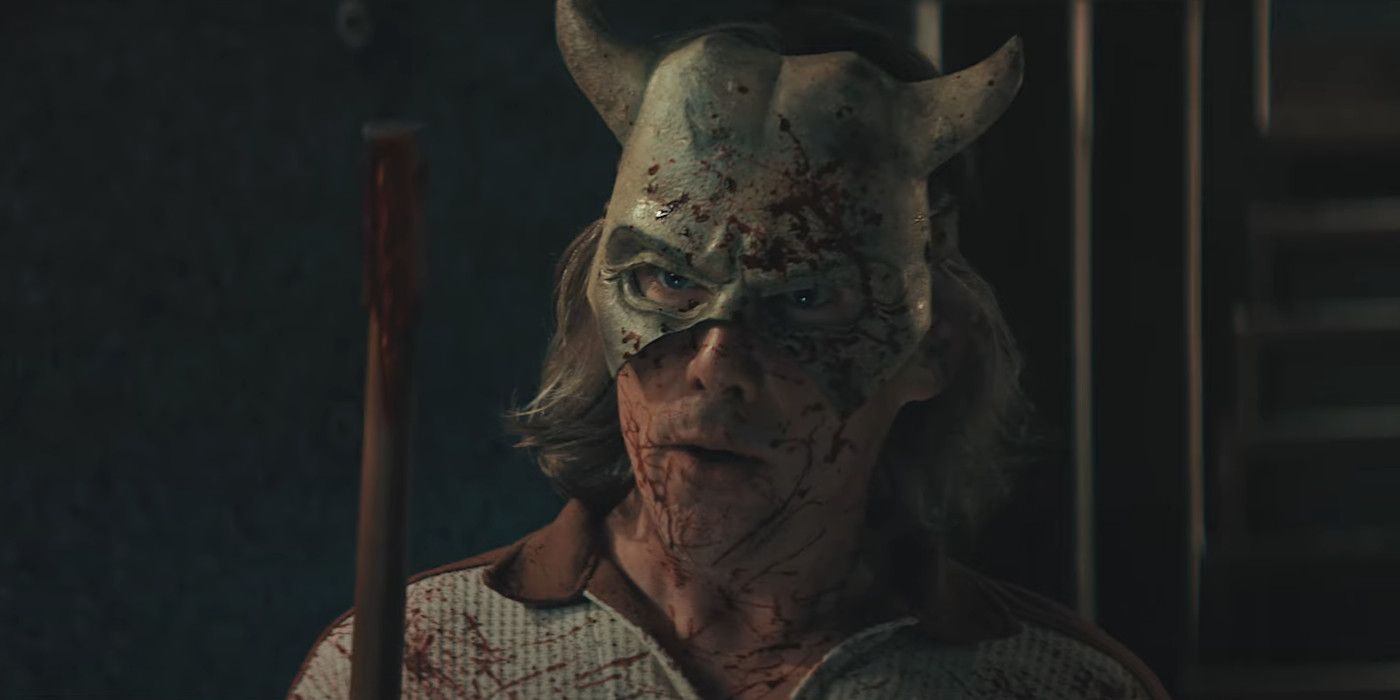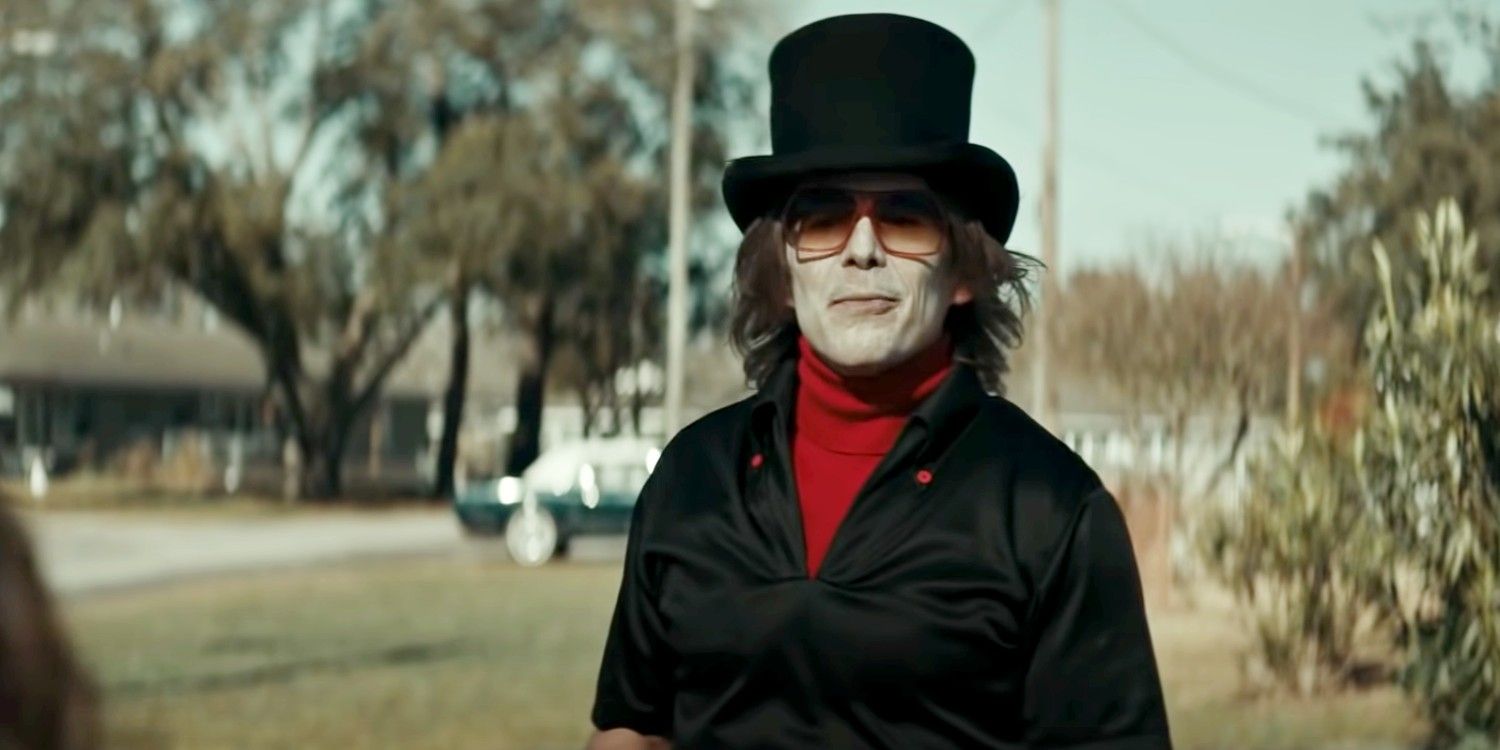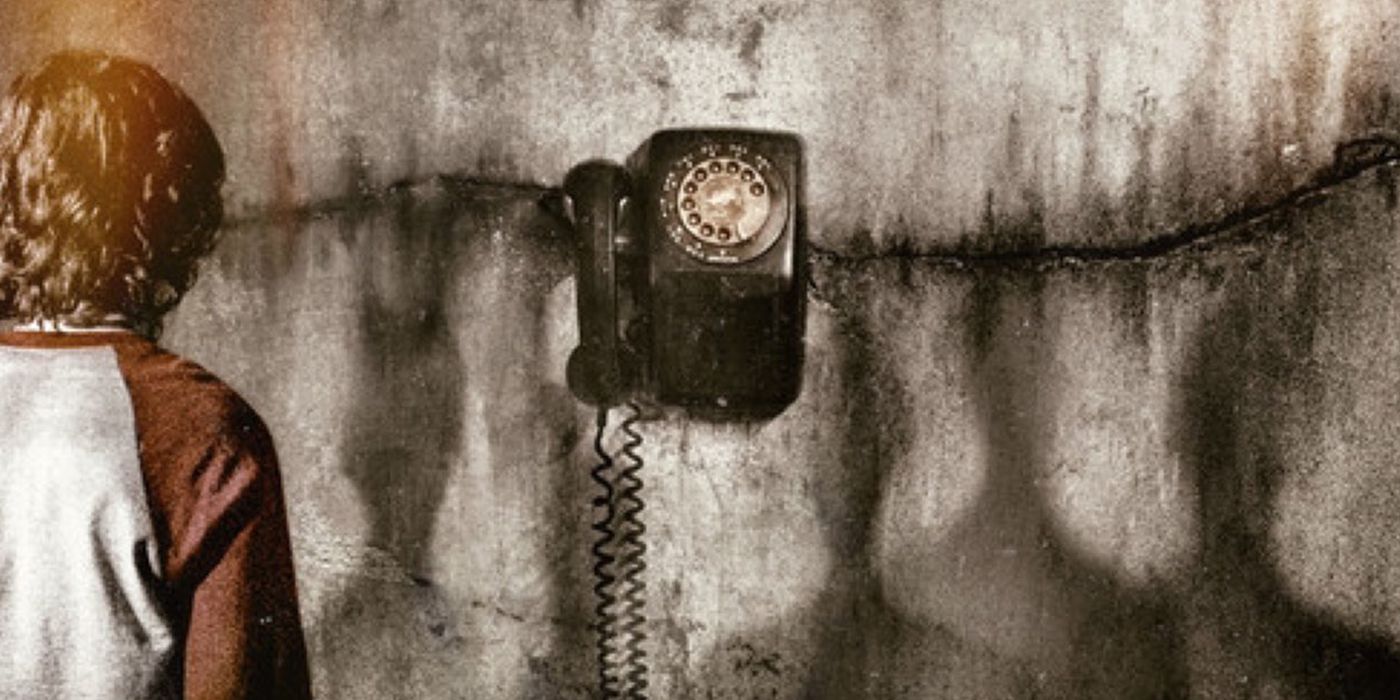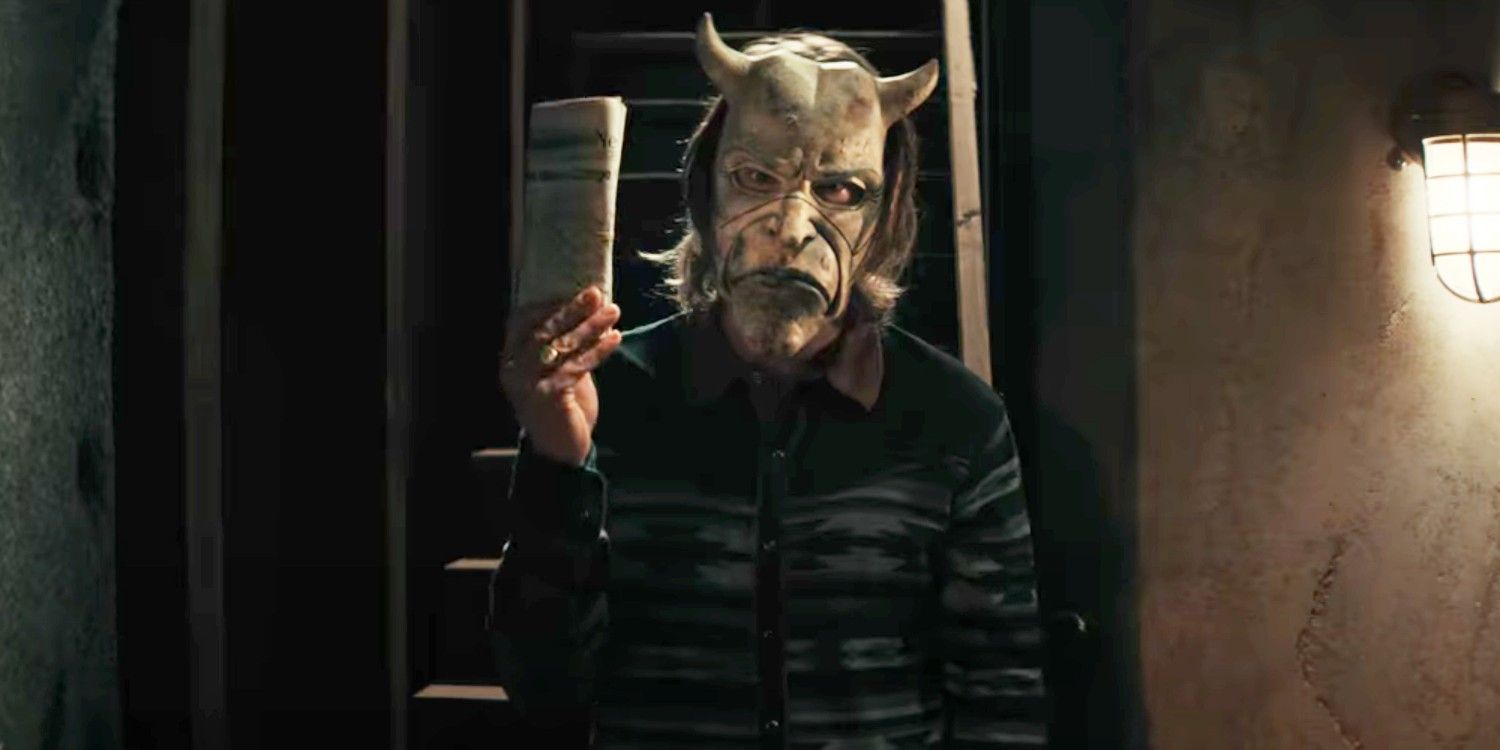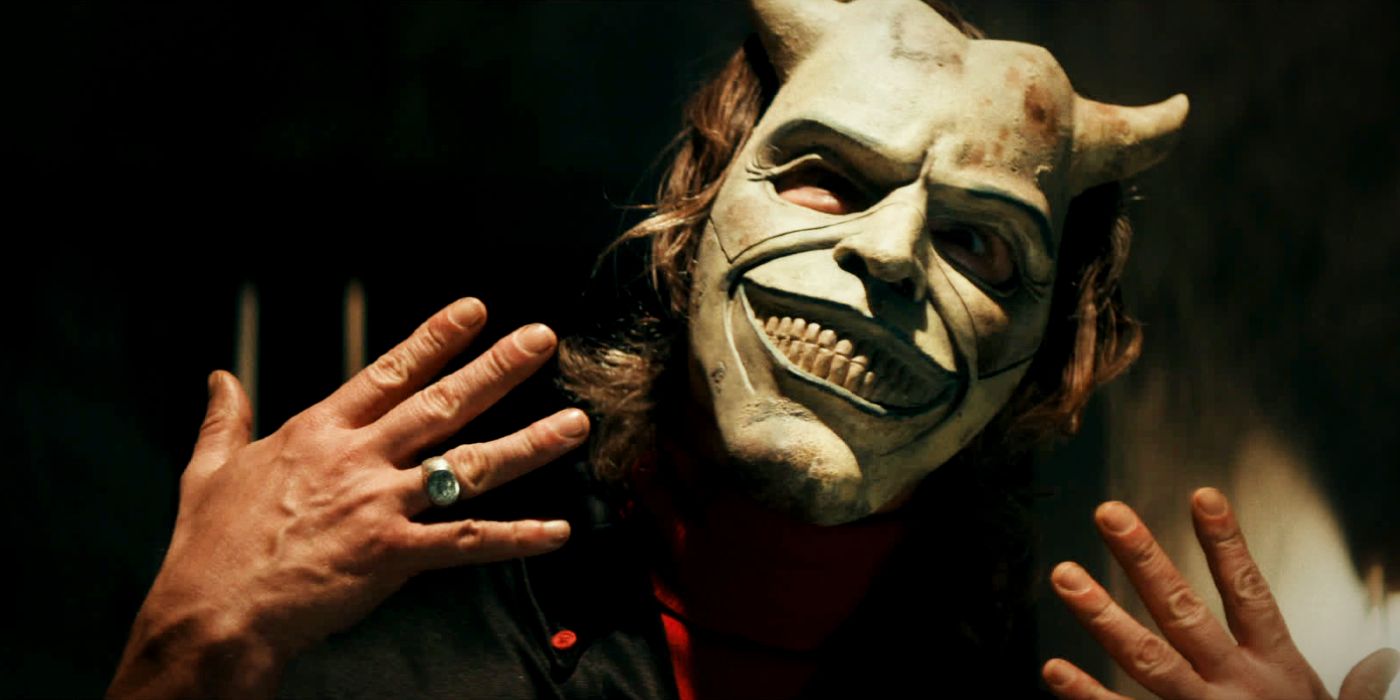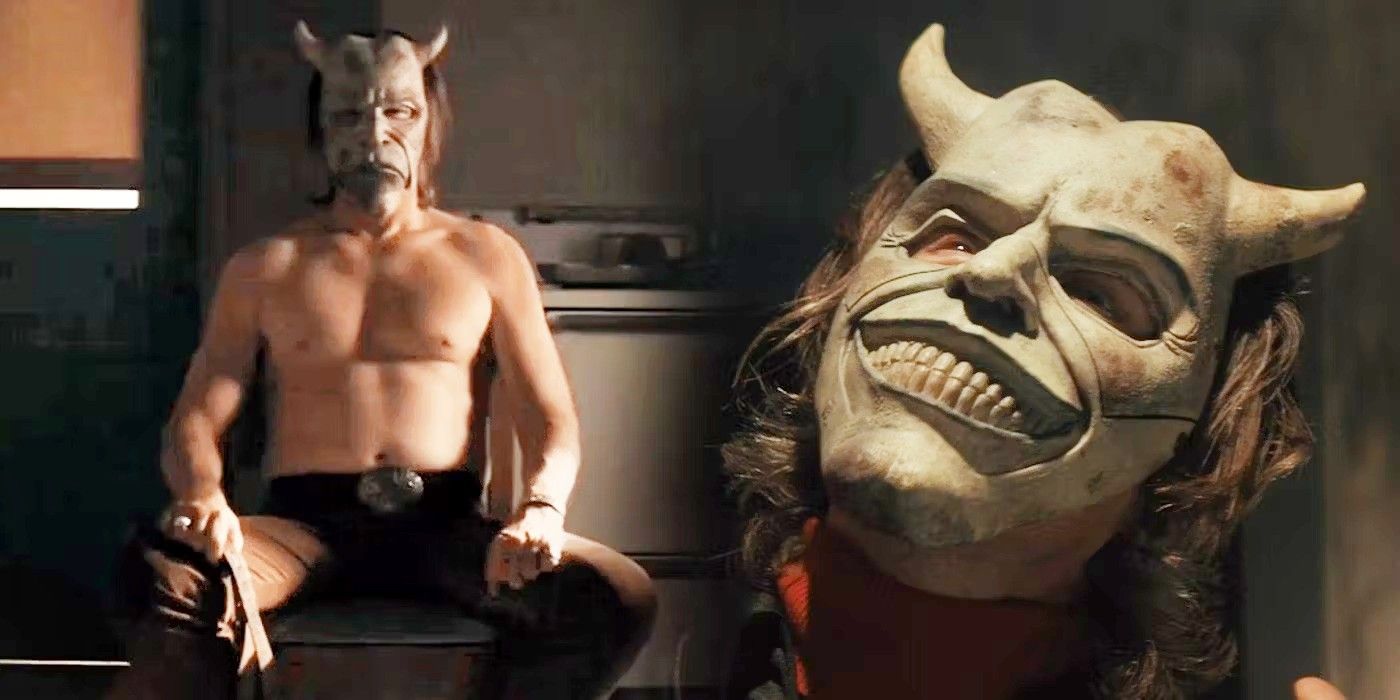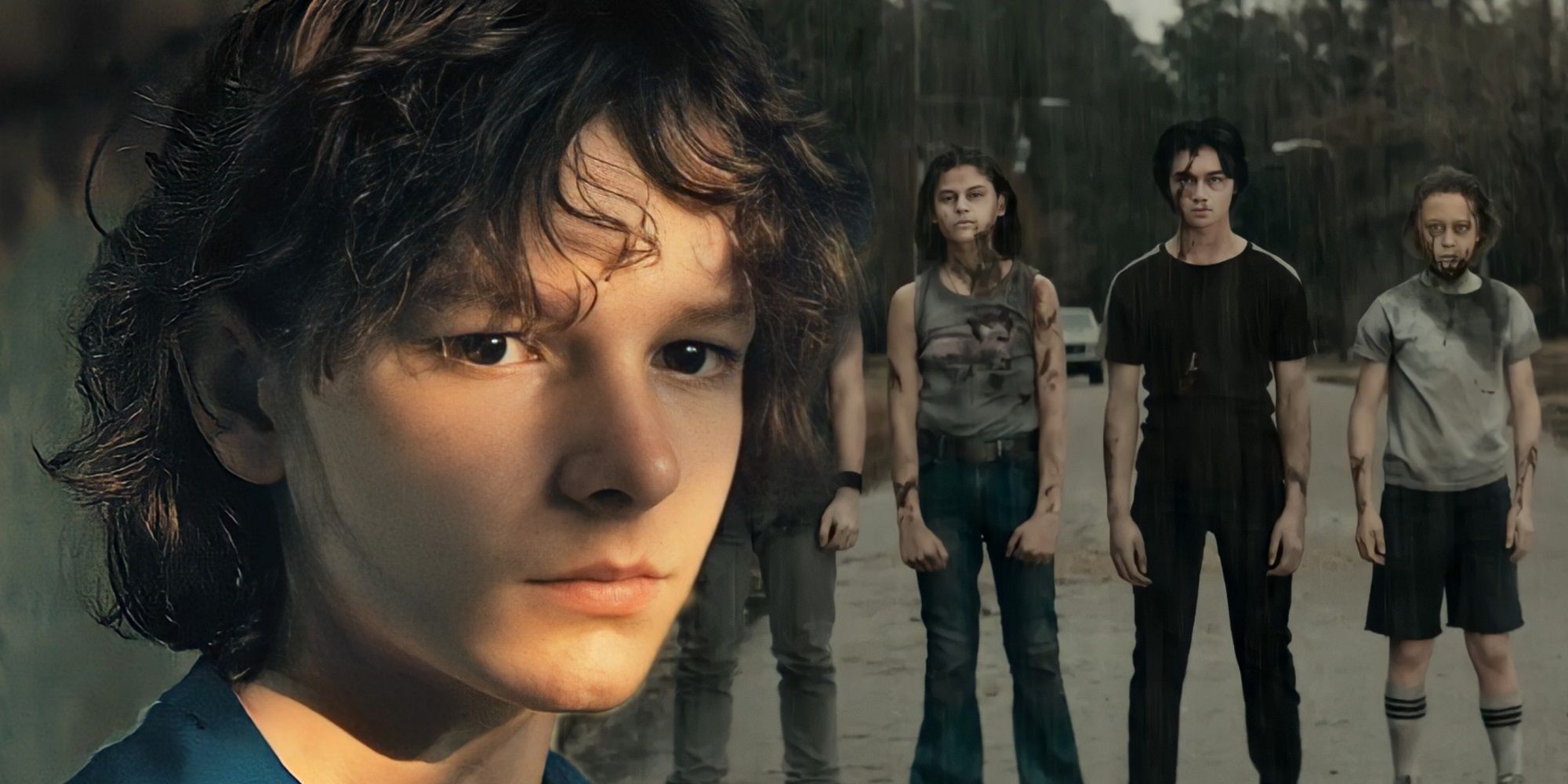What happens at the end of The Black Phone, and what does it all mean — here's The Black Phone explained. The Black Phone shares a lot of cast with Sinister, another horror film by director Scott Derrickson. While the two have much in common, their messages contrast with each other sharply. The Black Phone follows Finney (Mason Thames), a quiet 13-year-old boy who has a bully problem. When he's the sixth kid to be abducted by a serial killer named "The Grabber" (Ethan Hawke) and locked away in a soundproof basement, he does everything he can to safely find his way back to his little sister, Gwen (Madeleine McGraw).
The Black Phone doesn't have an end-credits scene. It isn't that sort of movie. It's not a complicated ball of twine to be unraveled so much as it is an examination of hope, humanity, and familial love. The Black Phone explained is tough to chew on at first, but it's easy enough to follow in the end. For her part, Gwen is trying to make use of her budding psychic ability to see things in her dreams to find her brother. Meanwhile, The Grabber is haunted by the five children he's already killed, each of whom also plays a crucial role in saving Finney. Here's The Black Phone ending explained.
Does Finney Kill The Grabber?
As The Black Phone explained, when The Grabber's brother, Max (James Ransone), finally realizes that Finney is in the basement and The Grabber kills him to keep him quiet, his game with Finney is done. He comes at him with an ax, intending to make his death hurt as much as possible. In desperation, Finney runs away and triggers a trap he's been able to set up due to the help of The Grabber's other victims, as The Black Phone ending explained.
Unlike Sinister, the similar The Black Phone ending explained that the hero triumphs over the villain. The Grabber falls into a pit, breaks his ankle on a grate, and gets bludgeoned by the dirt-filled phone Finney prepared for this purpose. When it looks like The Grabber still might gain the upper hand, Finney knocks The Grabber's mask off, and he freaks out, trying to shield his face. Finney is then able to wrap the phone cord around his neck and snap his neck. Ultimately, The Black Phone is about good triumphing over evil.
Could The Grabber Hear The Phone All Along?
In The Grabber's soundproofed basement, the titular Black Phone sits on a wall, disconnected. It makes a handy weapon against The Grabber, so one would think that he'd have taken it out long ago. The Black Phone is an adaptation of a Joe Hill short story that ends very similarly — though earlier — than the film. The short story The Black Phone explained that The Grabber can hear the phone. One of the deceased children tells Finney that the phone's been ringing, but that Finney is the first victim who could hear it. He then reveals in The Black Phone adaptation that "The Grabber can hear it, too," as The Black Phone ending explained.
What Does The Black Phone Represent?
The Grabber tells Finney to hang the phone up in the first scene in which it's shown. It can be understood that the phone is a necessary piece of The Grabber's psyche. He's haunted by his past sins, and they are calling him up to get revenge and to stop him from murdering more children. He's ignoring their call. In the near-perfect horror movie moment, the Black Phone's cord is used to kill The Grabber. The Black Phone explained that when Finney picks up the phone and all the children get their final say to their murderer, it's clear that they were the ones who orchestrated his death.
The Black Phone, which is deeper than most realize, is emblematic of The Grabber's guilt much like his mask is emblematic of his shame. He plays games with the boys he takes, forcing them to act "naughty" so he can better justify beating and killing them. As The Black Phone explained, he can't remove the phone from the basement because he can't absolve himself of the murders he's committed. That the Black Phone is ultimately used to kill The Grabber shows the care that was put into this story, basically stating that The Black Phone is about good beating evil.
What's With All The Bullying?
The Black Phone explained that Finney is bullied at school, Finney and Gwen are beaten by their alcoholic father, and The Grabber is deeply disturbed and violent, despite putting on airs of being friendly. Joe Hill's adaptation of The Black Phone has something to say about violence toward children, in particular, with some of its most uncomfortable scenes featuring Finney and Gwen's father instead of its terrifying villain.
The movie sends out a message about standing up for oneself and, when that's not enough, finding a group to stand with you. Finney can't stop his father from beating Gwen. He can't stop bullies from beating him up. But, emboldened by the other victims of The Grabber's abuse, he's able to take back control and be bold enough to stand against the murderer's evil and violence. This follows him to the end of the film when Finney is shown to be confident and no longer miserable and scared at school, as The Black Phone explained.
The Real Meaning Of The Black Phone’s Ending
Not just another Ethan Hawke horror movie, The Black Phone explained something philosophical about empowering victims of abuse and violence. It has a message of community and how terror can be warded off by the strength of numbers. No evil is so big that it can't be dispelled by the unity of individuals. The Black Phone ending explained that it speaks to a need that humanity has to destroy evil — even if that means reaching back from the grave to do it. It might be a horror movie, but The Black Phone is really more about hope than horror and more about destroying evil than being hurt by it.
Black Phone's Ending Might Have Created Sequel Problems
The Black Phone was initially set to be a one-off horror movie. However, rumors abound when it comes to the possibility of The Black Phone 2. That being said, the ending of The Black Phone purposefully doesn't set up a sequel by any means — which could create huge problems for the possible installment. The reasoning behind these sequel talks is because the movie itself was a smash hit. The Black Phone made $152.8 million worldwide against an $18 million budget.
Not only that, but the film did exceptionally well with critics and audiences, earning an 82% critics score and 88% audience score on the review aggregator site Rotten Tomatoes. Making a critically regarded horror film is no easy feat, as the genre is usually under scrupulous scrutiny and cheap scares are more common than ever these days. However, just because a movie is successful doesn't mean it needs a sequel.
The Black Phone ending explained a note of finality, with Finney killing the Grabber with the help of his victims. So, what does this mean for a possible sequel? Well, studios would obviously have to find a way to bring the serial killer back. Since there are already supernatural elements, as The Black Phone explained, in the form of Gwen's prophetic dreams, it's possible that Ethan Hawke's Grabber could come back Michael Myers-style.
The matter would have to be approached delicately, as poorly handled resurrections risk cheapening a franchise. There's also the option of making Finney the new Grabber, but The Black Phone explained that this may not be possible. This, again, would have to be handled well in order to make a good sequel. If Finney were traumatized enough by his time in captivity, it's possible that this would transform him into the new serial killer. Either way, the masked and unidentified Grabber's death in the end of The Black Phone creates major sequel problems that may be insurmountable.
The Black Phone Book Ending Is Much Shorter
There were a surprising amount of changes made to The Black Phone and its ending. Notable ones like the fact that Bruce was the only victim Finney spoke with on the phone and the fact that Finney had no tools at his disposal changed the ending significantly. The Black Phone ending explained in Joe Hill's short story that Finney dug a hole in the ground, which The Grabber fell into, and Finney then strangled him. The movie ending to The Black Phone explained much more, with Finney escaping The Grabber's house and changing his dynamic with his father.
Finney's escape wasn't plotted out in The Black Phone short story. It's also worth mentioning that The Grabber had two houses in the story, one where he kept the kids and one where he buried them. One of the highest-grossing Ethan Hawke movies, The Black Phone explained that Finney's fixed relationship with his father also resulted in Finney having more courage surrounding his crush. The Black Phone movie gave a real sense of closure to Finney's story — something that the short story didn't do. Another important change The Black Phone made from its source material is that the Naughty Boy game didn't exist, The Grabber starved his victims instead.


